US Military Officers Urge Washington To Arm Israel Against Iran
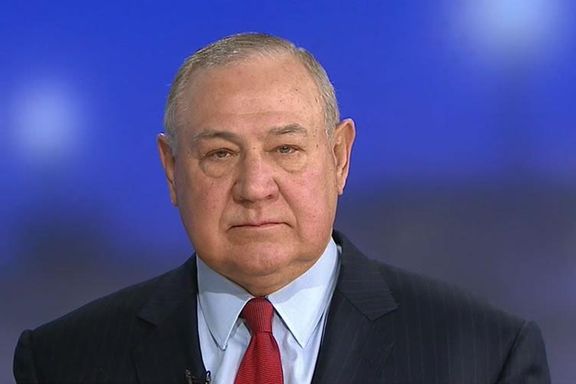
US military commanders urged the Biden Administration to expedite sales of advanced weapons to Israel to deter and prevent Iran's nuclear threat.

US military commanders urged the Biden Administration to expedite sales of advanced weapons to Israel to deter and prevent Iran's nuclear threat.
In an open letter published by the Jewish Institute for National Security of America, 44 American generals and admirals wrote, “To confront this pressing high-priority threat, the United States should immediately provide Israel with the advanced weapons it needs to deter and prevent a nuclear Iran.”
The US, Israel’s biggest defense supplier, was urged by the group to “expedite delivery—through outright sale, temporary lease, or prepositioning in Israel—KC-46A aerial refueling tankers, F-15I’s, F-35s, and precision-guided munitions, such as the Joint Direct Attack Munition (JDAM)”.
However, Israel, Iran’s nemesis, currently has its lowest ever approval rating from the Democrats amidst ongoing conflict with the Palestinians which have seen clashes at their worst since the second intifada 20 years ago, and a right-wing government trying to overhaul the judicial system, impose strict religious policies as well as expanding settlement building, contravening international law.
Iran says its nuclear technology is solely for civil purposes, but its policy of enriching uranium to over 80 percent has no civilian use and only a short step away from bomb-level purity of 90 percent. The nuclear threat is “one of the most pressing strategic challenges America faces today”, according to the group.
“Our military experience has taught us that demonstrating the willingness and capability to use force offers the best chance against having to do so. If a conflict does commence, it is best to possess already the weapons necessary to achieve success,” the group added.
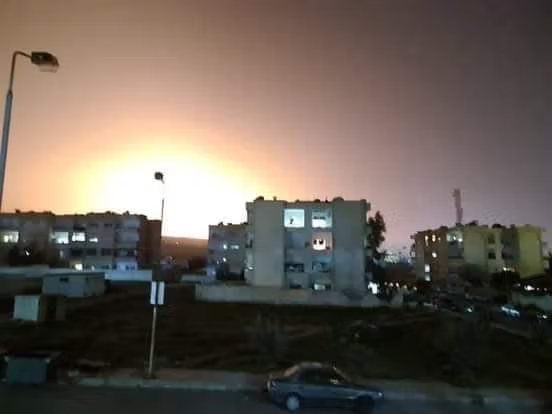
Israel hit targets near Syria's Aleppo airport Wednesday in an air strike reportedly aimed at destroying an Iranian arms depot.
The Syrian defense ministry said the air strike targeted the vicinity of Syria's Aleppo airport causing some "material damage.”
Israel has been carrying out regular attacks since 2017 against what it has described as Iran-linked targets in Syria, where Tehran's influence has grown since it began supporting President Bashar al-Assad in the civil war that started in 2011.
In the third attack on Aleppo airport in six months, Israel launched "a number of missiles from the Mediterranean Sea, west of the coastal city of Latakia, at 3:55 a.m.", the Syrian defense ministry said in a statement on state media.
Two regional intelligence sources told Reuters the strike hit an underground munitions depot linked to the nearby Nairab military airport, where missile-guided systems delivered onboard several Iranian military planes had been stored.
Iran has increased the use of Aleppo airport to deliver more arms over the past month, taking advantage of heavy air traffic as cargo planes offload relief aid in the wake of the February's deadly earthquake, Western intelligence sources say.
An Israeli strike on March 7 that knocked Aleppo airport out of service had blown up an Iranian arms cargo shipment hours after it was delivered by an Iranian plane that Damascus said was carrying aid, the Western intelligence sources say.
Israel has in recent months intensified strikes on Syrian airports and air bases to disrupt Iran's use of aerial supply lines to deliver arms to allies in Syria and Lebanon, including Lebanon's Iran-backed Hezbollah.
The strikes are part of an escalation of what has been a low-intensity conflict termed a "war between wars", the goal of which has been to slow Iran's entrenchment in Syria, Israeli military experts say.
Iran's proxy militias, led by Hezbollah, now hold sway in vast areas in eastern, southern, and northwestern Syria and in several suburbs around the capital.
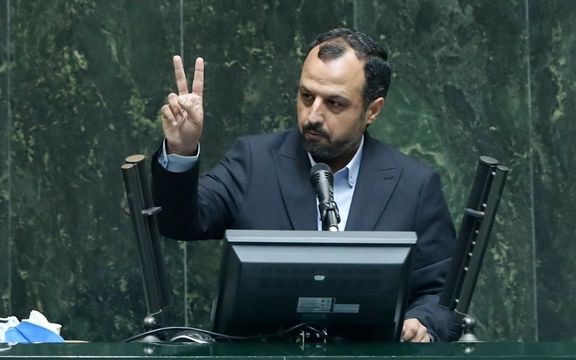
Iran wants to expand its cooperation with Russia in the energy sector, including the development of "peaceful" nuclear energy, Iranian Economy Minister Ehsan Khanduzi said.
"The prospect of cooperation in the field of 'new energy' and renewable energy sources, as well as in the field of other types of energy, including peaceful nuclear energy, certainly causes great interest and motivation for expanding economic relations with Russia," Khanduzi said in an interview with Russia’s RIA state news agency published on Tuesday.
Iran and Russia are cooperating to expand Iran's Bushehr nuclear power plant. Russia started deliveries of nuclear fuel for Bushehr in late 2007, a step both Washington and Moscow said removed any need for Iran to have its own uranium enrichment program.
Khanuzi also said Iran counts on "huge volumes" of oil and gas swaps from Russia this year.
"This year will witness huge volumes of swap supplies. We are very pleased that Tehran and Moscow have started cooperation on the issue of swap supplies of oil and gas," Khanduzi was cited as saying.
There were no details on what volumes of oil and gas Iran is expecting.
In October, Russia said that a swap deal with Iran may initially include 5 million tons of oil and 10 billion cubic meters of natural gas per year.
There have been many reports about possible Russian investments in Iran’s fossil fuel sector, but so far no projects have been launched.
Iran has been delivering drones to Russia for its war on Ukraine and Western powers have expressed serious concerns over expanding military ties between Tehran and Moscow.
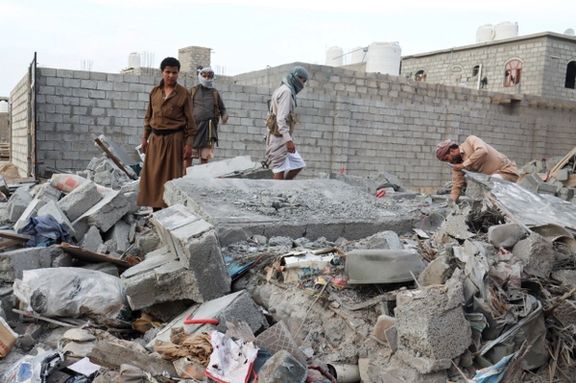
The two sides in Yemen's conflict Monday said Monday they had agreed to exchange some 880 detainees after talks in Switzerland facilitated by the UN and the International Committee of the Red Cross.
The head of the Yemeni government delegation told Reuters around 880 detainees would be exchanged.
The development comes after a deal between Iran adn Saudi Arabia March 10 to restore diplomatic ties.
Yemen's Iran-aligned Houthi group said it would release 181 detainees, including 15 Saudi and three Sudanese, in exchange for 706 prisoners from the government, according to statements on Twitter by the head of the Houthis' prisoner affairs committee Abdul Qader al-Murtada and the group's chief negotiator Mohammed Abdulsalam.
The UN and ICRC did not immediately confirm that a deal had been reached.
There is hope that a deal could facilitate broader efforts to end the conflict, which have been helped by the resumption of ties between Iran and Saudi Arabia this month.
UN special envoy Hans Grundberg told the UN Security Council last week that there were intense diplomatic efforts at different levels to end the fighting.
The exchange of around 15,000 conflict-related detainees has been under discussion as a key confidence-building measure under a December 2018 UN-mediated deal known as the Stockholm Agreement.
But progress has been slow. A few exchanges, including in 2022 and 2020, have been coordinated by the ICRC, alongside smaller deals directly between the warring parties.
The conflict in Yemen has widely been seen as a proxy war between Saudi Arabia and Iran. A Saudi-led coalition intervened in Yemen in 2015 after the Houthis ousted the government from the capital Sanaa in 2014.
A UN-brokered truce last April has largely held, despite expiring in October without the parties agreeing to extend it.
Reporting by Reuters
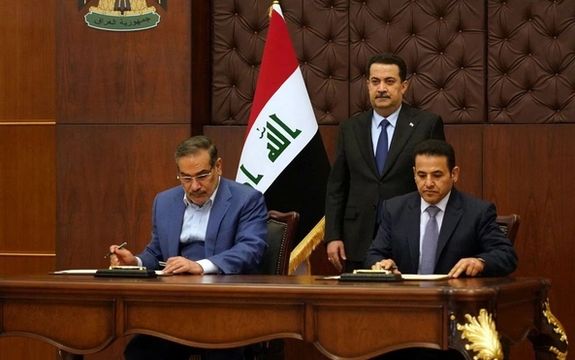
Iran’s top security official signed an agreement with his Iraqi counterpart Sunday in a deal aimed at curbing activities of Kurdish militants.
The secretary of Iran’s Supreme National Security Council (SNSC) Ali Shamkhani and his Iraqi counterpart, Qassim al-Araji inked the joint security cooperation document during a ceremony also attended by Prime Minister Mohammed Shia' Al Sudani in Baghdad.
A statement from the Iraqi prime minister's office said that the joint security agreement includes coordination in "protecting the common borders between the two countries and consolidating cooperation in several security fields."
A spokesperson said, "Under the signed security deal, Iraq pledges it will not allow armed groups to use its territory in the Iraqi Kurdish region to launch any border-crossing attacks on neighbor Iran."
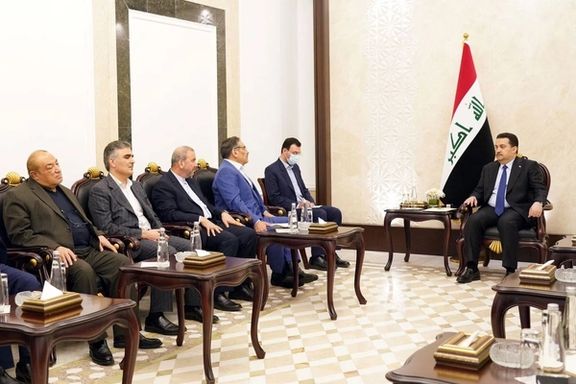
The frontier came into renewed focus last year when Iran's Revolutionary Guards launched missile and drone attacks against Iranian Kurdish groups based in northern Iraq, accusing them of fomenting protests that were sparked by the death of an Iranian Kurdish woman, Mahsa Amini, while she was being held in morality police custody.
Nour News, a media outlet close to the SNSC, said earlier in the day that the deal would facilitate efforts to deal with problematic Kurdish groups that coordinate measures against the Islamic Republic along with Israeli agents and armed insurgents.
The Islamic Republic calls Iranian Kurdish armed groups sheltering in Iraq, "terrorist groups" but these groups say that the goal of their armed campaign is "defending the rights of the Kurds".
Generally, the Kurdish parties − including Komala and the Kurdistan Democratic Party of Iran (KDPI) − favor Kurdish autonomy within a federal Iran. Pejak (the Free Life Party of Kurdistan), an affiliate of the Kurdistan Workers’ Party, or PKK, formed in Turkey but also based in northern Iraq, has generally favored a unified, independent Kurdistan uniting Kurds in Syria, Iraq, Turkey, and Iran.
Shamkhani is also scheduled to hold talks with Masrour Barzani, the Prime Minister of the Iraqi Kurdistan Region, on the issue of border security.
Shamkhani and the Iranian delegation also paid a visit to the site where IRGC’s Quds (Qods) force commander Qassem Soleimani and Abu Mahdi al-Muhandis, the second-in-command of Iraq’s Popular Mobilization Units, were killed by a US drone attack three years ago.
Iran claims that US interference in the region has been creating regional unrest, its sanctions driving a domestic crisis. Shamkhani said this "can no longer be tolerated".
During the meeting with his counterpart, Shamkhani acknowledge the role played by the Iraqi negotiating team which, along with Oman and China, brokered a détente between Tehran and Riyadh.
Shamkhani's trip to Baghdad follows his landmark trips to China and the United Arab Emirates earlier this month as part of the Islamic Republic’s renewed zeal to revive ties with regional neighbors and deepen relations with its global allies, indicating that Supreme Leader Ali Khamenei is relying more on his representative for high-profile missions than the country’s Foreign Minister Hossein Amir-Abdollahian. The Secretary of the Supreme National Security Council is nominally appointed by the president, but he also serves as Khamenei’s representative in the Council.
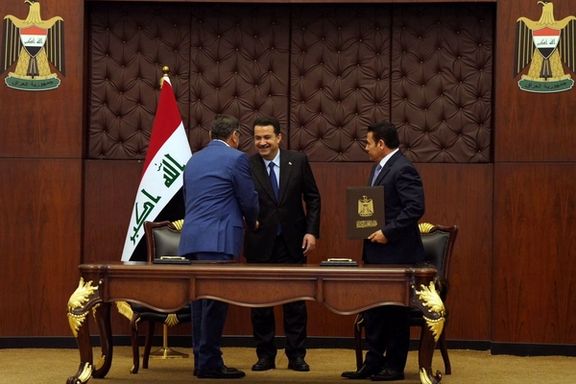
Khamenei’s decision to send Shamkhani to Beijing showed that in serious matters he needs a more qualified official than hardliners populating the current presidential administration. In fact, Rouydad24, a reformist news website in Tehran pointed out Saturday that hardliners have been trying to tarnish Shamkhani’s image, by leaking information that one of his former aides, Alireza Akbari, was executed in January for espionage. Rumors also circulated in February and March that he was about to be dismissed following the news about his aide. As a close ally of former President Hassan Rouhani, hardliners would like to see an ultra-conservative take over the key role which critics say he retained due to his being a member of Khameini's trusted circle.
Although the 83-year old dictator made sure ultra-conservatives loyal to him take the absolute majority in parliament and the presidency in 2020 and 2021 respectively, he knows there are few qualified people among them, and at least in the realm of key foreign policy issues he makes sure his direct representatives are more balanced and experienced officials. This also brings up the question of why he entrusted the nuclear negotiations to people more associated with the ultra-conservatives.
In a move to assert his role, Amir-Abdollahian said on Sunday he will soon meet his Saudi counterpart Faisal bin Farhan Al Saud as negotiations to reopen embassies and consulates in the two countries, continue.
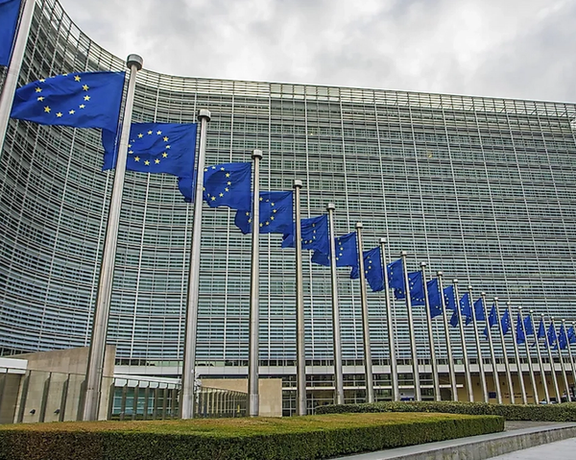
Sources say the European Union intends to impose sanctions on eight Iranians and an organization that had a hand in suppression of protests following the death in custody of Mahsa Amini.
EU countries have agreed to take new punitive measures against those responsible for the repression, the Dutch website De Telegraff quoted some sources as saying.
The bloc’s foreign ministers still have to approve the sanctions on Monday at their meeting in Brussels, but it is expected to be adopted.
The designated individuals and organizations will no longer be allowed to enter the EU and can no longer access any assets in the union. The EU has so far imposed such sanctions on 196 Iranians and 33 Iranian organizations and companies including prominent politicians and security officials.
The latest round of sanctions from the EU in late February included Iran's Culture Minister Mohammad Mehdi Esmaili for persecuting artists and filmmakers and also Education Minister Yousef Nouri for suppressing students.
The European Parliament has called on the EU to list the Revolutionary Guards as a terrorist entity, blaming it for the repression of domestic protests and the supply of drones to Russia.
However, the 27-nation bloc has so far stopped short of blacklisting the IRGC as a terror group, despite calls from Berlin and Amsterdam.